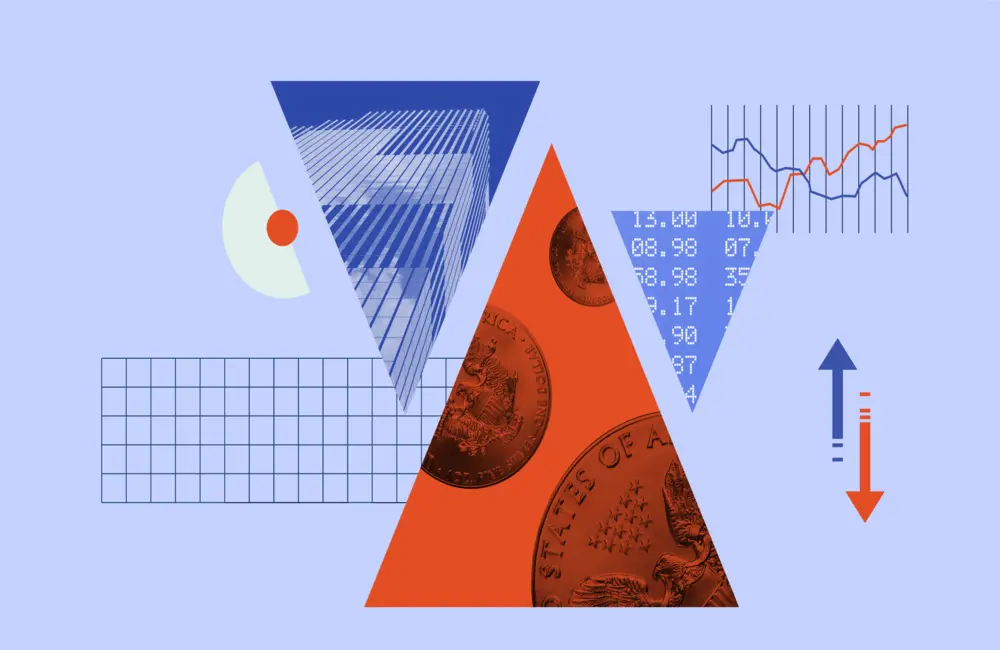ASX futures were 24 points or 0.3 per cent higher at 7205 shortly after 7am on Friday, indicating a small gain at the open.
U.S. stocks rebounded in trading on Thursday as the S&P 500 tried to retrace some of its losses after five straight days of declines fueled by fears about how bad an economic downturn could be.
The S&P 500 rose 0.76% in the final hours of trading, while the Dow Jones Industrial Average gained 0.5% and the tech-focused Nasdaq Composite added 1.3%.
It’s been a period of losses in recent days for stocks in the United States, where the S&P 500 index, a benchmark, has dropped on eight of the last nine trading days. Fears that the Federal Reserve will keep interest rates higher for longer, possibly raising its benchmark rate above the 5% that is priced in for officials next year, have been a key driver of those losses.
Its implications for the US economy are still unknown. Recent data, including the November jobs report released last week, have suggested that the economy has proved more resilient than expected. New data on US applications for unemployment benefits released Thursday showed only mild gains from the previous week, another indication that the labor market remains tight.
Thursday’s advance in stocks came as a recent rally in Treasury bonds fizzled. The yield on the benchmark 10-year U.S. Treasury note rose Thursday to 3.465% from 3.407% on Wednesday. Bond prices fall when yields rise.
Investors are also watching the Treasury yield curve, which gauges the difference between short- and long-term interest rates. And though the two-year yield has been trading higher than the 10-year yield for months, a condition known as a yield-curve inversion, a widening spread is bad news, analysts and investors say. An inverted yield curve is generally accepted as a red flag that a recession is coming.
In the commodities markets, Brent crude oil was down 1.10% to $US 76.32 a barrel, gold rose 0.1% to US$1,7788.11.
Looking locally, yields on 2-year government bonds in Australia moved up to 3.08%, and the yield on their 10-year rose to 3.36%. Across the Seas The yield on 2-Year US Treasury notes fell to 4.32%and on 10-Year US Treasuries also fell to 3.49%. The Australian dollar was at 67.70 US cents up from 67.22 US cents at the previous close. The Wall Street Journal Dollar Index, which measures the U.S. currency against 16 others, slipped to 97.74.
Asia
Mainland China Stocks of companies on the mainland closed lower, with investors worried that the economy could be slammed by flare-ups of Covid after easing some Covid-19 restrictions. Technology and hardware companies were among the biggest decliners, with Beijing Kingsoft Office Software down 2.1% and Yonyou Network Technology off 1.5%. Property stocks and financial firms gained. Shares of Gemdale Corp. added 2.9%, China Vanke added 4.8% and Ping An Bank rose 1.6%. The Shanghai Composite Index fell 0.1% to 3169.35, the Shenzhen Composite Index lost 0.3%, and the ChiNext Price Index was down 0.1%.
Stocks in Hong Kong finished the day sharply higher, bouncing back from a decline on Wednesday and returning to a rally that has been fueled by optimism over China’s reopening. The blue-chip Hang Seng Index climbed 3.4% to 19450.23. Nearly all sectors rose, with consumption-related companies leading the gains. Sands China surged 10 percent, Meituan rose 6.4 percent and Haidilao gained 6.2 percent. Analysts said the market would be observing how China handles an anticipated wave of infections and potential scarcity of medical supplies, all now more likely with the relaxed anti-Covid measures.
Japan Stocks finished lower today, pressured by declines in electric stocks, as concerns continue to linger regarding the U.S interest rate view. Nidec Corp. dropped 2.9% and Sony Group retreated 1.9%. The Nikkei Stock Average dropped 0.4% to 27574.43. Investors have their eyes on the increasingly dire economic numbers including US weekly unemployment claims due later in the day.
Europe
European shares inched lower, as gains for drug shares were outweighed by losses for oil and mining companies after weak Chinese trade data. The pan-European Stoxx Europe 600 fell 0.3%, the German DAX fell 0.2%, and the British FTSE and the French CAC 40 both fell 0.1%. Pharmaceutical firms Sanofi, GSK and Haleon rose following a US court ruling over heartburn medication Zantac. “European markets have struggled today after the latest Chinese trade numbers for November saw both imports and exports fall off a cliff,” wrote CMC Markets analyst Michael Hewson.
North America
US stocks rallied in early trading on Thursday, indicating the benchmark S&P 500 index may rebound from five straight days of losses driven by fears about how bad a hit the economy will take.
The S&P 500 rose 0.76% during the final hours of the trading day, and the Dow Jones Industrial Average was up 0.5%, while the tech-heavy Nasdaq Composite climbed 1.3%, as investors continued to monitor new developments related to the spread of the coronavirus.
American stocks have suffered a period of losses lately, with the benchmark S&P 500 tumbling in eight of the last nine trading days. Concerns that the Federal Reserve will keep interest rates elevated for longer than expected have helped to drive those losses, as traders have mulled the possibility that officials will lift their benchmark rate above the 5 percent that is now envisioned for next year.
Its impact on the US economy is unclear. The economy has proved more resilient than expected, recent data, including last week’s November jobs report, has shown. Fresh numbers Thursday on applications for US unemployment benefits indicated only a modest uptick from the prior week, another sign of a taut labor market.
Even as stocks gained Thursday, investors are focused on the next round of inflation reports — producer prices due Friday and consumer prices due Tuesday and next week’s Federal Reserve meeting, said Louis Navellier, founder of Navellier & Associates. The reports are expected to show tame inflation and a dovish Fed statement. “We’re just kind of treading water, waiting to get all the good news,” he said.
Yet a choral line of recent comments from the top echelons of major banks warning of an impending recession, as well as job cuts at companies like Morgan Stanley and PepsiCo, have darkened sentiment, investors say.
“There’s been a little bit of a shift based on growth concerns over the last couple of days,” said John Roe, head of multi asset funds at Legal & General Investment Management. “If you start to see folks who arguably should have the best handle on where the economy is going making cuts, then maybe that's a little more of a signal that the bigger worry should be growth.”























